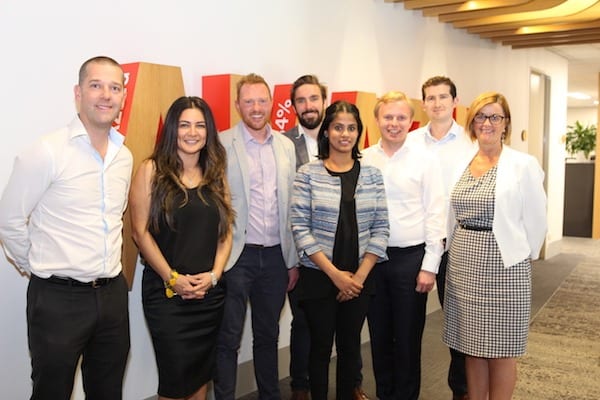There are in-house milk banks at hospitals in Melbourne, Perth and Sydney, but with 24 NICUs across Australia, there are still many sites without access to donor milk.
In 2012, I was invited to speak at a 3 day neonatal medical conference in Chicago. More than 1200 delegates were present representing over 900 Neonatal Intensive Care Units (NICUs) from around the world.
I was only one of two parents invited to speak and as is often the case at such conferences, I spent time listening to many of the presentations. Being of a medical nature, some of the content can be out of my league, however, one of the things that struck me was that over and over, there was an underlying theme across the talks of the differences in outcomes for premature babies on breast milk and those on formula. What I was taking away from these doctors and researchers, and these are my own words, was that for extremely early and sick babies, breast milk acted more like a medicine than a food. The simple fact was (and still is) that premature babies do better on breast milk than formula. It seemed so evident. Breast milk, particularly for preterm babies, could reduce the risk of complications (some which can lead to death), increase immunity, lower infections and is easier for their tiny and immature guts to process.
At one point, I leaned back and whispered to the Professor beside me, “so why isn’t every baby in a NICU given breast milk?” He looked at me. His eyes said everything. The question didn’t need an answer and while I may have been hearing this information, in this way, for the first time, he wasn’t.
Yes, as the mother of three preterm babies, I was told of the importance of my breast milk, ‘liquid gold’ as it was described, and I was given every support possible to establish my supply. But what happens when you can’t establish that supply? What happens when you are sick or in intensive care too? What happens when you are asking for your body to do something that it is not supposed to do for another few months? What happens when you are trying to feed more than one sick baby? What happens when you are in emotional distress? And, what if you have to do it all without your baby with you because it is inside a humidicrib fighting for survival?
From personal experience, I can share that hand and then machine expressing to establish and supply milk for your baby is hard. Bloody hard. Your body is supposed to respond to a baby suckling, not mechanics. I think for me, in those first few days, more tears were shed than drops of milk collected. I already felt so much sadness and guilt for not being able to keep my baby safe and inside me longer, that failing at this too was heartbreaking. I didn’t want him on formula, that would never have been my choice, but he needed to eat and I had no milk yet. And as the hospital had no access to donor milk, formula was the only option.
And this is the case at most NICUs in Australia. Mother’s own milk is given first and when this is not available, the baby is given formula, even when the known truth is, for better outcomes, the options should be mothers own milk and when not available, donor milk. For premature babies, formula needs to be taken out of the equation.
Two years ago, I got a goose bump moment when I was invited onto a new project. The Australian Red Cross Blood Service were exploring the possibility of establishing a milk bank and wanted to know if I would join their Clinical Advisory Board. It was a big yes, I could not have been more excited or prepared. Finally, there was going to be a solution to support every mother’s effort to feed her sick and early baby or babies.
I sat alongside the Red Cross Blood Service team and the Heads and key staff from some of our NICUs. I confirmed the unwavering support of Miracle Babies Foundation and I anticipated that this service would quickly acquire an army of parental support for both donors and the families of the babies that would receive the donated milk.
This week, all the behind the scenes hard work has paid off for South Australia’s most vulnerable miracle babies with the official launch of the Australian Red Cross Blood Service Milk Bank which will supply pasteurised donor breast milk to The Women’s and Children’s Hospital (WCH) and Flinders Medical Centre (FMC) in Adelaide.
With this launch, I have goosebumps all over again and it is just the beginning with plans to continue this service for more families across Australia in the near future.
I know how I felt asking that question in that conference all those years ago and I know what it would have meant to me to have this option as I cried and tried desperately to make my milk come for my little ones. Congratulations to all involved. It is hands down one of the most important commitments health can give our earliest and sickest babies and their parents.
For more information on the Milk Bank visit www.milkbank.com.au and for family support visit www.miraclebabies.org.au Read more from Melinda Cruz at www.melindacruz.com
Melinda is pictured above with the Red Cross Milk Bank head office team.


